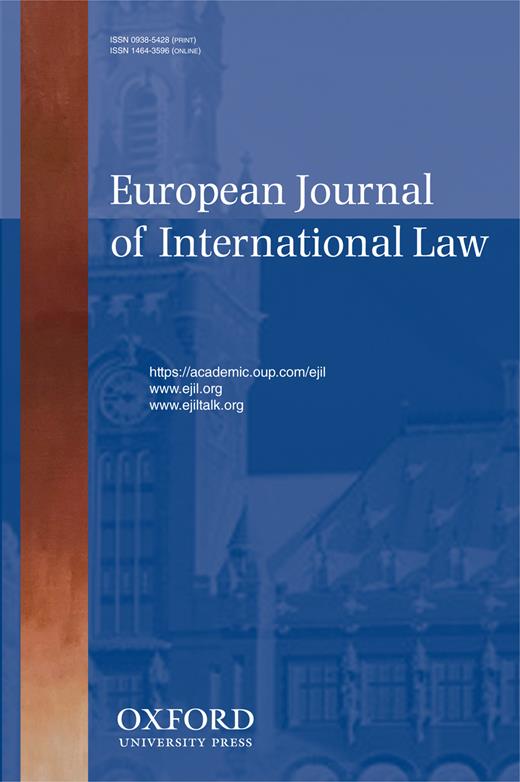-
PDF
- Split View
-
Views
-
Cite
Cite
Nico Krisch, International Law in Times of Hegemony: Unequal Power and the Shaping of the International Legal Order, European Journal of International Law, Volume 16, Issue 3, June 2005, Pages 369–408, https://doi.org/10.1093/ejil/chi123
Close - Share Icon Share
Abstract
Hegemony and international law are often regarded as irreconcilable: international law is widely assumed to depend on a balance of power and to be eschewed by hegemons in favour of political tools. This corresponds to an often idealized contrast between international law and international politics, one reflecting reason and justice, the other brute power. Realists and critical legal scholars have long sought to counter this idealization, but often by merely reducing international law to power. This article seeks to go beyond these positions by analysing the multiple ways in which dominant states interact with international law. Drawing on international relations theory, it develops a model of this interaction and illustrates it with historical examples, taken mainly from Spanish, British and American phases of dominance. The typical pattern observed is one of instrumentalization and withdrawal, coupled with attempts at reshaping international law in a more hierarchical way and at replacing it with domestic legal tools that better accommodate formal hierarchies. The resulting picture should provide a starting point for critique and help us better understand why international law is simultaneously instrumental and resistant to the pursuit of power. International law is important for powerful states as a source of legitimacy, but in order to provide legitimacy, it needs to distance itself from power and has to resist its mere translation into law. International law then occupies an always precarious, but eventually secure position between the demands of the powerful and the ideals of justice held in international society.
Author notes
1Merton College, Oxford University. E-mail: nico.krisch@merton.oxford.ac.uk.


